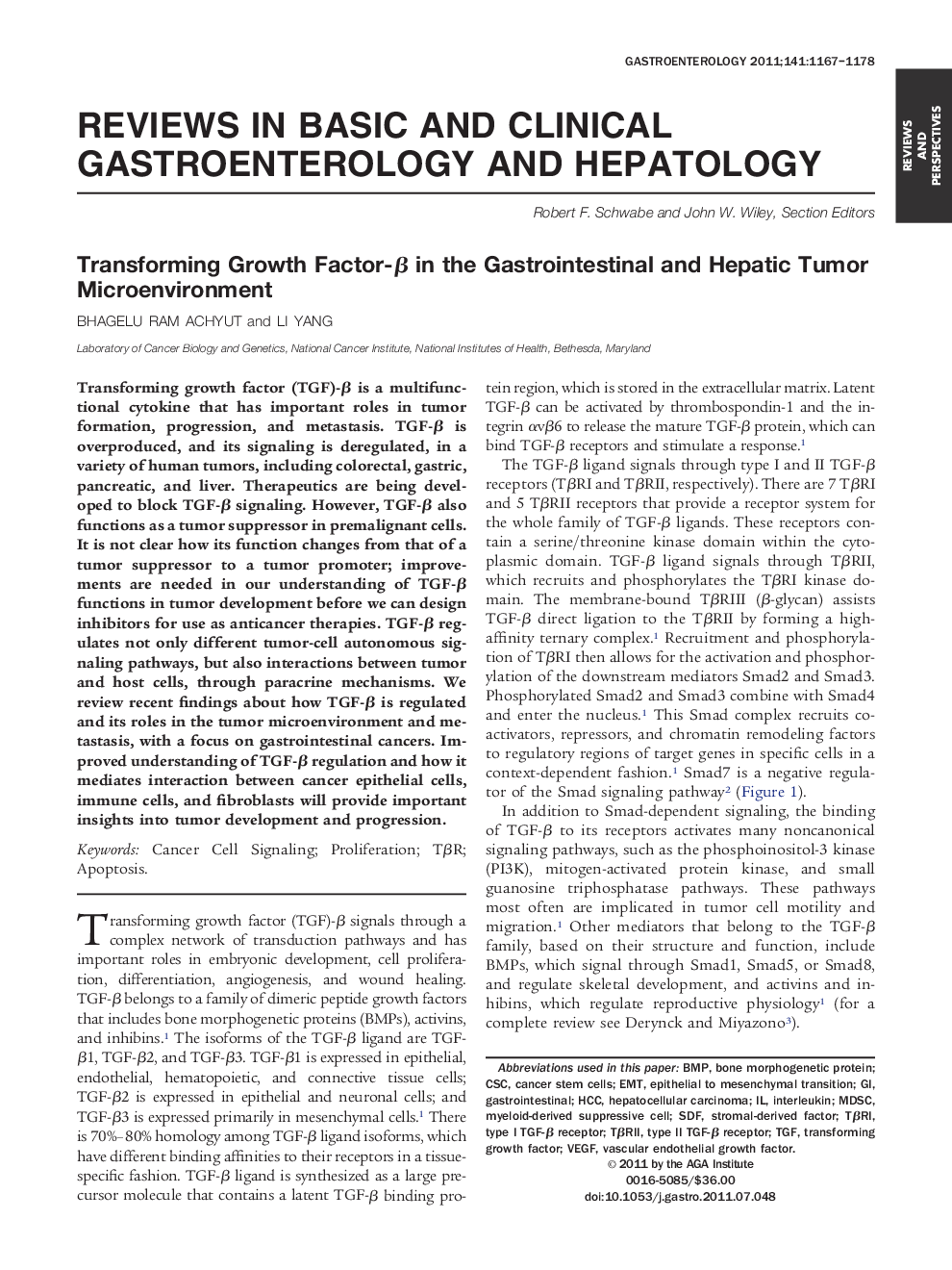| Article ID | Journal | Published Year | Pages | File Type |
|---|---|---|---|---|
| 3295675 | Gastroenterology | 2011 | 12 Pages |
Transforming growth factor (TGF)-β is a multifunctional cytokine that has important roles in tumor formation, progression, and metastasis. TGF-β is overproduced, and its signaling is deregulated, in a variety of human tumors, including colorectal, gastric, pancreatic, and liver. Therapeutics are being developed to block TGF-β signaling. However, TGF-β also functions as a tumor suppressor in premalignant cells. It is not clear how its function changes from that of a tumor suppressor to a tumor promoter; improvements are needed in our understanding of TGF-β functions in tumor development before we can design inhibitors for use as anticancer therapies. TGF-β regulates not only different tumor-cell autonomous signaling pathways, but also interactions between tumor and host cells, through paracrine mechanisms. We review recent findings about how TGF-β is regulated and its roles in the tumor microenvironment and metastasis, with a focus on gastrointestinal cancers. Improved understanding of TGF-β regulation and how it mediates interaction between cancer epithelial cells, immune cells, and fibroblasts will provide important insights into tumor development and progression.
